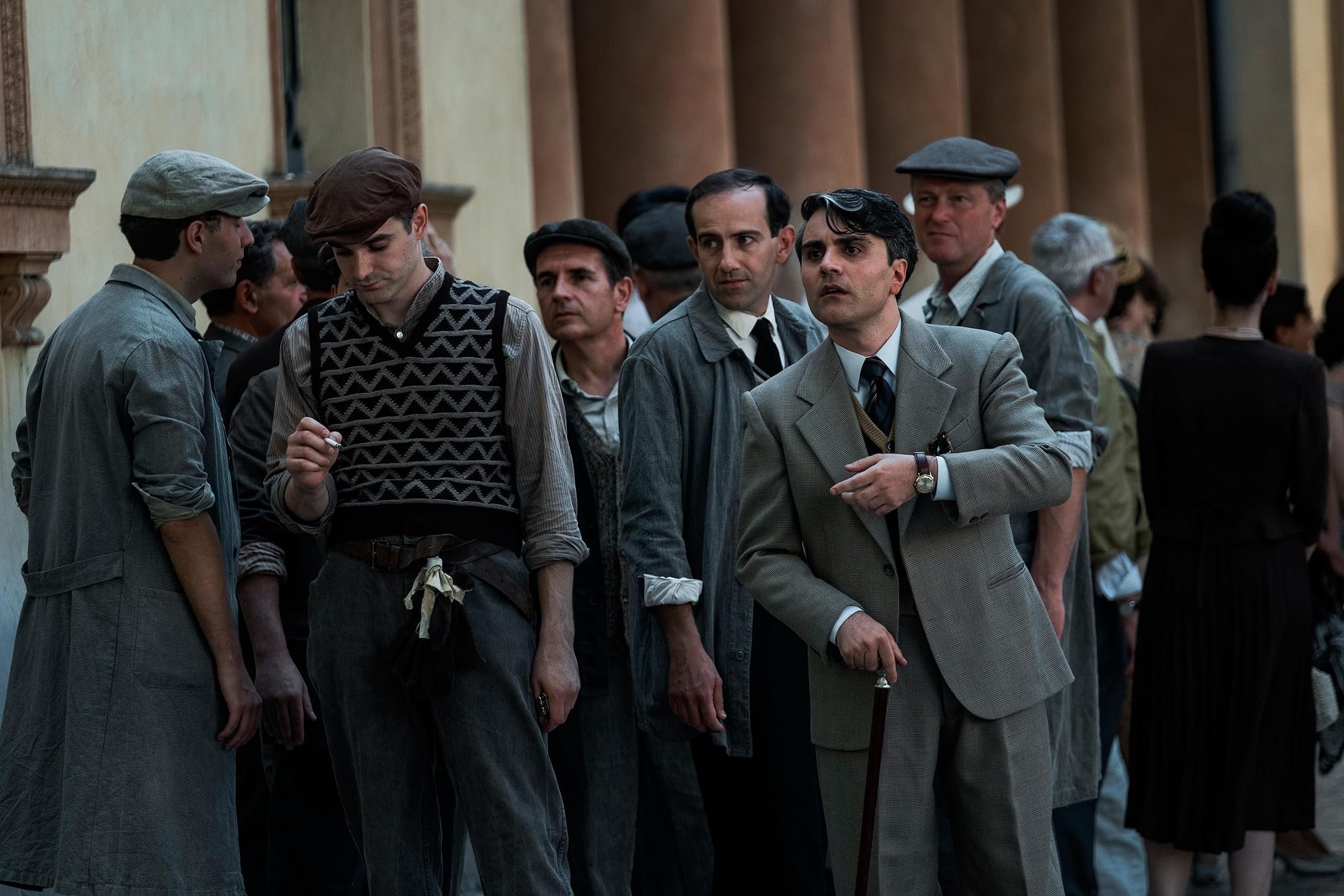Ferrari (2023)
Director: Michael Mann
Starring: Adam Driver, Penelope Cruz, Shailene Woodley, Gabriel Leone
Primary genre: Biography
Secondary genre: Sports
Third genre: Drama
The biographical sports drama “Ferrari” detailing Enzo Ferrari’s financial and familial struggles in the 1950s seemed promising on paper. Although this was touted as a passion project for Michael Mann, the final film is actually a mixed (and underwhelming) bag of results. While nowhere close to the cinematic travesty that was “House of Gucci” (2021), it still features several and similar problematic aspects.
This is the second movie that Mann did not wrote (the other one being “Blackhat” (2015)) and it shows. None of the dialogue has any panache while the adapted script from Ferrari’s biography is not enough to stimulate the senses. There is a substantial lack of depth here, Mann’s camera moving from place to place to present unintriguing proceedings failing to capture what makes the always gorgeous Italian countryside unique. While other auteurs like Scorsese remain true to their style (e.g., “Killers of the Flower Moon” (2023)), Mann’s has been diluted; gone are the wonderful architecture shots and symmetric composition. He chops and edits a two and half hour flick bizarrely too by employing weird zoom ins (and outs), misplaced shots, 180 degree camera changes in dialogue moments, and sudden cuts like a ten year old who just discovered the tricks of technology.
The stakes are relatively low and the absence of three dimensional characters make things even less compelling; Ferrari is presented as a guy with massive walls around him but neither Adam Driver nor the script give him anything to flex his acting muscles. Under unconvincing make up, his Enzo telegraphically reports, describes and negotiates things that ultimately do not matter. For example, his Enzo talks about a new car engine to make the cars faster and lighter but this never comes into play again while his rivalry with Maserati is superficially hinted despite in theory propelling much of the film’s shenanigans. We are not sure why he has a lover as he lacks a silver tongue and is utterly oblivious to people’s feelings. Driver tries his best but the all over the place and coming and going accent is not doing him any favours. He is indifferent at best and by the end, being able to characterize Enzo Ferrari in a movie called “Ferrari” proves to be quite the challenge.
Casting anything but Italians with no or hideous accents (why bother?) and absolutely no resemblance to Mediterranean people, no cast member registers in the audience’s memory except perhaps Penelope Cruz as Ferrari’s (capable) wife and partner Laura who brings Mediterranean charm to a feisty albeit lackluster role. Her limited interactions with Enzo bring “Ferrari” to life and perhaps it would have been if this was the central focus of the film - how grief can drive a person to leave their old life behind for better or worse. Other (myriad of) characters come and go bearing no traits and considering we spent the last twenty minutes on the much anticipated Mille Miglia race and its pivotal outcome, we can barely distinguished any of Ferrari’s drivers (including an unrecognizable Patrick Dempsey).
“Ferrari” fails to elicit any interest as a sports drama too. Renny Harlin’s “Driven” (2001) in comparison is a masterpiece because it boards the b-movie train under the pretense of Formula 1 delivering several racing sequences. Here we have only two (yep only two) races and considering that Mille Miglia is the whole catalyst for the story, at least you should be rewarded with some breathtaking car sequences. Instead the race is geographically and time wise confusing lacking of established adversity or dangers despite the heavy foreshadowing. While the sound design is spot on, it barely brings any momentum to a film doomed to fail due to its inept ability to present dramatically engaging material.
You would not believe that “Ferrari” was made by the director of “Last of the Mohicans” (1992), “Heat” and “The Insider” (1999) making it by far Mann’s weakest film. It is not at least unintentionally hilarious as “House of Gucci” was but if you take into account the talent involved in front and behind the camera, it is truly a wasted opportunity.
House of Gucci with cars
+Penelope Cruz shines
+Enzo and Laura’s relationship
+Sound design
-Anemic main lead
-Unconvincing cast
-Telegraphic proceedings
-Mann at his weakest




